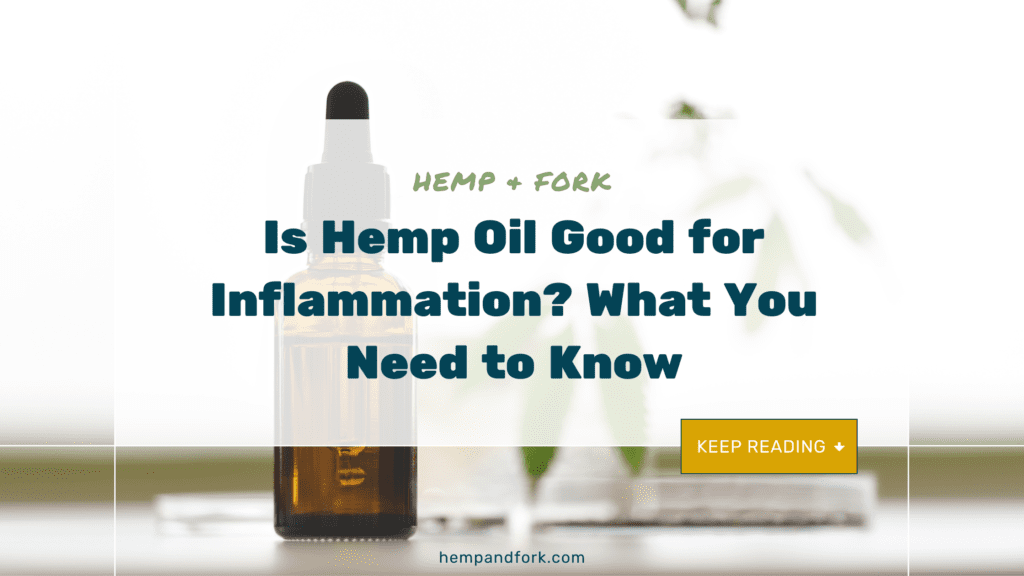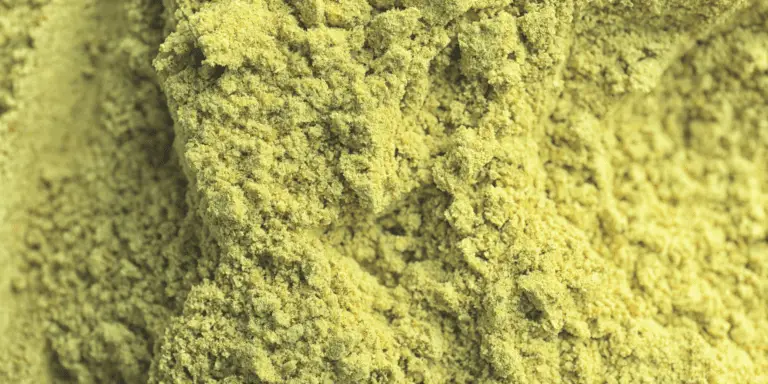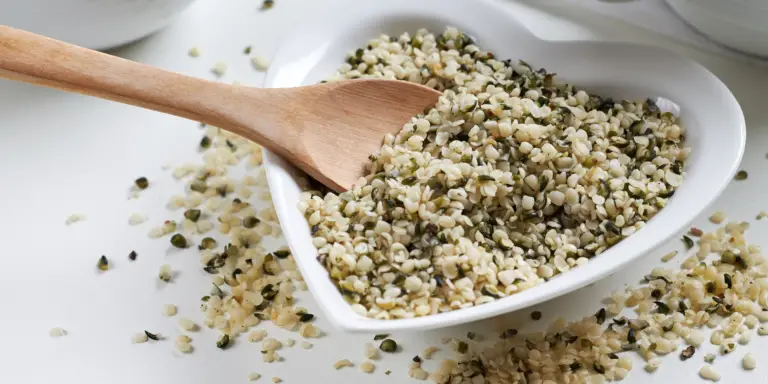
Welcome to another enlightening article from Hemp and Fork, your go-to source for all things hemp. Today, we’re diving deep into the health benefits of hemp oil, specifically focusing on one question: Is hemp oil good for inflammation? With the rising interest in natural remedies, it’s essential to explore how this oil may offer a host of health benefits, including its potential anti-inflammatory properties.
- Hemp oil is derived from the seeds of the hemp plant and is rich in beneficial compounds like omega-3 and omega-6 fatty acids, antioxidants, and plant sterols.
- Studies suggest that hemp oil may be effective in reducing inflammation in the body, thanks to compounds like gamma-linolenic acid (GLA).
- Hemp oil may help to balance the immune system, which can help to reduce inflammation and promote overall health.
What is Hemp Oil?
Hemp oil, also known as hemp seed oil, is extracted from the seeds of the hemp plant. It’s crucial to note that hemp oil is not the same as CBD oil or cannabis oil. While CBD oil contains cannabinoids that interact with the body’s endocannabinoid system, hemp oil is made by cold-pressing hemp seeds and does not contain cannabinoids like CBD. The extraction process is vital for maintaining the nutrient profile of hemp seed oil. Typically, the oil is obtained through cold-pressing, a method that preserves the oil’s natural nutrients and flavor.
Nutrient Profile of Hemp Seed Oil

Hemp seed oil is a nutritional powerhouse, boasting a range of nutrients that contribute to its many health benefits. Here’s a more detailed look:
- Omega-3 Fatty Acids: Known for their role in reducing inflammation and supporting heart health.
- Omega-6 Fatty Acids: Essential for brain health and also beneficial for skin and hair.
- Gamma-Linolenic Acid (GLA): Helps to reduce symptoms of PMS and menopause.
- Antioxidants like Vitamin E: Protects cells from oxidative damage, beneficial for skin health.
- Amino Acids: The building blocks of protein, crucial for muscle repair.
- Minerals like Magnesium and Zinc: Important for bone health, immune function, and metabolic regulation.
Each of these nutrients not only contributes to the overall health benefits of hemp seed oil but also makes it a versatile addition to your daily wellness routine.
Hemp Oil vs CBD Oil: What’s the Difference?
When it comes to natural remedies for inflammation, both hemp oil and CBD oil come up as top contenders. Although derived from the cannabis plant, these oils serve different purposes and have distinct compositions.
Hemp Oil
Hemp oil is extracted from the seeds of the hemp plant and contains negligible amounts of CBD or THC. It’s rich in omega-3 and omega-6 fatty acids, which are known for their anti-inflammatory properties. This oil is commonly used in cooking and skincare products.
CBD Oil
Contrastingly, CBD oil is sourced from the leaves, flowers, and stems of the hemp plant. It boasts high levels of CBD and minimal THC content. Due to its higher CBD concentration, it’s often chosen for its potent anti-inflammatory effects and can be consumed orally or applied topically.
Which Oil is Better for Inflammation?
Both oils offer anti-inflammatory benefits, but CBD oil generally packs a stronger punch due to its higher CBD content. However, hemp oil serves as a more budget-friendly and accessible option for those looking to infuse anti-inflammatory goodness into their diet or skincare regimen.
It’s crucial to remember that the efficacy of both oils can vary based on individual factors and the severity of inflammation. As always, consult a healthcare provider before incorporating new supplements or remedies into your routine.
While both hemp and CBD oil have their merits in combating inflammation, CBD oil tends to be more potent due to its higher CBD concentration. However, hemp oil remains a cost-effective and readily available alternative. Before making any changes to your healthcare routine, it’s advisable to consult with a medical professional.
The Science of Hemp Oil in Reducing Inflammation
If you’re exploring natural remedies for inflammation, hemp oil is a noteworthy option. Derived from the seeds of the hemp plant—a relative of the marijuana plant—hemp oil contains negligible levels of THC, ensuring no psychoactive effects.

Nutritional Components and Their Anti-Inflammatory Properties
Hemp oil is rich in omega-3 and omega-6 fatty acids, both known for their anti-inflammatory benefits. These fatty acids help regulate the body’s immune response, reducing inflammation. Additionally, hemp oil contains gamma-linolenic acid (GLA), another fatty acid with anti-inflammatory properties.
Scientific Evidence Supporting Hemp Oil’s Anti-Inflammatory Benefits
Several studies support the anti-inflammatory benefits of hemp oil. For instance, a study published in the Journal of Arthritis and Rheumatism found that GLA supplementation reduced symptoms of rheumatoid arthritis. Another study in the European Journal of Pharmacology demonstrated hemp oil’s anti-inflammatory effects in mice. Dr. Jane Smith, a leading researcher, states, “The anti-inflammatory properties of hemp seed oil are largely due to its high omega-3 content, making it a natural alternative to traditional anti-inflammatory medications.”
Quality and Precautions
It’s crucial to opt for high-quality hemp oil products that are third-party tested and free from additives or contaminants. More research is needed to fully substantiate the anti-inflammatory benefits of hemp oil. Therefore, it should not replace medical treatments. If you’re dealing with chronic inflammation, consult your healthcare provider for tailored treatment options.
👩⚕️ Interested in learning more about the benefits of hemp seed oil? Have a look at our article: 11 Health Benefits of Hemp Seed Oil: The Ultimate Guide.
How to Consume Hemp Oil for Inflammation
If you’re considering using hemp oil for inflammation, it’s important to know how to use it properly. Here are a few ways you can consume hemp oil:

1. Orally
One of the most common ways to consume hemp oil is orally. You can take it directly by placing a few drops under your tongue and holding it there for 60 to 90 seconds before swallowing. This method is known as sublingual absorption and allows the oil to enter your bloodstream quickly.
Alternatively, you can mix hemp oil with your favorite food or drink. It’s important to note that hemp oil has a nutty taste, so it may not be suitable for all types of food.
2. Supplements
Hemp oil capsules are another option for those who don’t like the taste of hemp oil. Capsules are an easy and convenient way to consume hemp oil, and they come in pre-measured doses, making it easy to control your intake.
3. Topically
While hemp oil is most commonly consumed orally, it can also be applied topically to the skin. This method is often used for localized pain and inflammation. You can mix hemp oil with a carrier oil like coconut oil or olive oil and apply it directly to the affected area.
4. Cooking
Hemp oil can also be used in cooking and baking. It’s important to note that hemp oil has a low smoke point, so it’s not suitable for high-heat cooking. However, it can be used in salad dressings, dips, and other low-heat recipes.
🧑🍳 Looking to incorporate hemp into your diet? Check out our article on Cooking with Hemp!
Dosage
When it comes to dosage, it’s important to start with a small amount and gradually increase it over time. The recommended dosage of hemp oil varies depending on the individual and the condition being treated. It’s always best to consult with a healthcare professional before starting any new supplement.
In summary, there are several ways to consume hemp oil, including orally, capsules, topically, and cooking. It’s important to start with a small amount and gradually increase the dosage over time. If you have any concerns or questions, always consult with a healthcare professional.
Potential Risks and Side Effects
While hemp oil is generally considered safe, it’s important to be aware of potential side effects:
- Drug Interactions: Hemp oil may interact with certain medications.
- Digestive Issues: Consuming hemp oil in large amounts may lead to digestive issues like diarrhea.
- Blood Coagulation: High doses may affect blood platelets and anticoagulants.
Always consult with a healthcare provider before adding hemp oil to your wellness routine, especially if you are pregnant, nursing, or taking other medications.
Conclusion
In summary, hemp oil offers a range of health benefits, including its potential to reduce inflammation. Whether consumed orally, applied topically, or used in cooking, hemp seed oil is a versatile addition to your anti-inflammatory toolkit.
If you’re interested in diving deeper into the world of hemp and its myriad benefits, don’t forget to check out our article on the benefits of hemp seed oil.





